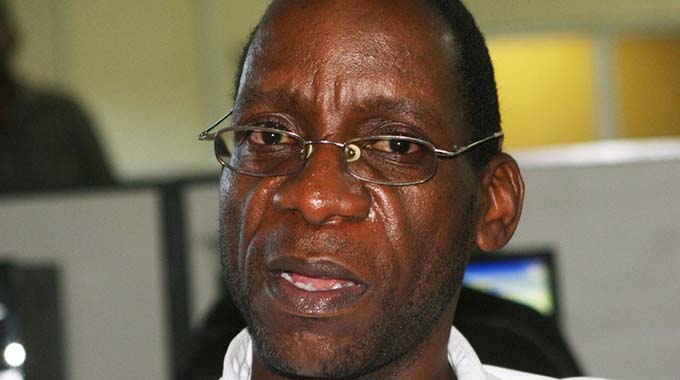Quitting UN rights body puts US ‘on wrong side of history’

Karen McVeigh Correspondent
The Trump administration’s decision to withdraw from the UN Human Rights Council puts the US on the wrong side of history and should be urgently reversed, activists have said.
The council needed reform, said campaigners, but remained a vital force for accountability and justice in a “post-rights world”.
Washington’s withdrawal, in protest against what it sees as bias and hypocrisy over Israel’s treatment of Palestinians, is the latest US rejection of multilateral engagement after it pulled out of the Paris climate agreement and the 2015 Iran nuclear deal.
Jan Egeland, the secretary-general of the Norwegian Refugee Council, said that the case for human rights and the rule of international law had “lost two captains”. He said the European Union without the “moral force of the UK” would be weaker following Brexit, and expressed bewilderment over Donald Trump’s policy of separating immigrant children from their parents at the Mexican border, which was reversed on Wednesday following a huge backlash.
“The US was supposed to be a moral leader. We’ve lost the captain on this team, of the battle for values,” said Egeland.
Citing the 1951 refugee convention, created in response to the millions of Europeans who fled violence during the second world war, Egeland said: “We need to remind ourselves when Europe was full to the brim of our own refugees, we told the world we need the right to asylum. Now we are facing a new sort of crisis and this time other people are knocking on our doors and saying: ‘We need asylum.’”
The US has been a leader in terms of refugee quotas, he said, taking in on average 100 000 a year from camps under President Barack Obama. Last September, Trump slashed the cap on admitting refugees to 45 000, far fewer than the average of about 85 000 over the past decade.
“The truly moral leaders are Germany – and Sweden of late – and they have experienced populist backlash,” said Egeland. “We need to reassess.”
Rights groups including Human Rights Campaign, Care International and Freedom House, said the US pullout from the UN human rights council would “make it more difficult to advance human rights priorities and aid victims of abuse around the world”.
Nikki Haley, the US ambassador to the UN, blamed campaigners for contributing to the pullout by playing a “deconstructive role”.
In a scathing letter to human rights watchdogs, Haley criticised opposition to US attempts to drive through a general assembly vote on reform last month.
“You put yourself on the side of Russia and China, and opposite the United States, on a key human rights issue,” she wrote.
“You should know that your efforts to block negotiations and thwart reform were a contributing factor in the US decision to withdraw from the council.”
Human rights groups branded as “ridiculous” suggestions that they were trying to undermine reform or work with Russia.
Polly Truscott, foreign affairs adviser for Amnesty UK, said it was feared that changes proposed by the US in the general assembly vote would have been subjected to hostile amendments and encountered significant opposition, weakening rather than strengthening the council. Suggestions for reform of the council by rights groups were incremental, she said, and consensus based.
“We’ve been working with many member states to improve the human rights council” said Truscott. “Now the US is throwing the baby out with the bathwater.”
Salil Shetty, Amnesty International’s secretary-general, said: “The US should urgently reverse this decision, which places it squarely on the wrong side of history. It is wilfully choosing to undermine the human rights of all people everywhere, and their struggles for justice.”
Christina Bennett, head of humanitarian policy at the Overseas Development Institute, said it was a vital time for the respect of human rights.
“I would say from the research we have done, we are not just in a post-rights world but a post-rules era,” said Bennett.
“We are seeing flagrant disregard for international humanitarian law. In Yemen, parties in the conflict are denying aid convoys and cutting off aid lifelines. The bombing of hospitals and aid convoys in both Yemen and Syria violates the letter and spirit of the law.”
Research on asylum seekers has revealed a “ripple effect” when countries seen as human rights leaders shirk their responsibilities, she said, noting that Kenya, Jordan and Indonesia were among countries that had been hosting refugees for decades, but “were now saying European governments – the architects of the refugee convention – are practising double standards”.
Bennett cited Kenya, where the government has threatened to close Dadaab, one of the world’s largest refugee settlements.
Kevin Watkins, chief executive of Save the Children UK, said: “There’s a legitimate argument to be made that the UN Human Rights Council needs reform to shift its focus and depoliticise its treatment of human rights cases. Many people would accept that.
“What we have to acknowledge is that the council has produced some profoundly important and impartial reviews of human rights violations around the world, from South Sudan to the Democratic Republic of the Congo. Withdrawal is never the best strategy for important reform. This is the moment to defend multilateralism and universalism, not withdraw from it.” – The Guardian.










Comments